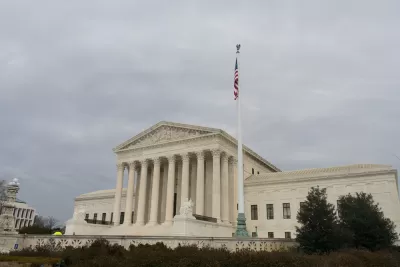Studies have shown that communities of color face disproportionate levels of air and water pollution, less access to green space and significant health disparities as a result of those factors.
“We want to acknowledge the harms we have done as a state with our environmental laws, with permitting, with waste and pollution, and reduce the harms to communities that have been impacted more,.." said Minnesota state Rep. Fue Lee.
The Democrat helped champion a law passed this year that forces regulators to consider cumulative pollution effects before issuing air quality permits in certain areas, . .
“We want to acknowledge the harms we have done as a state with our environmental laws, with permitting, with waste and pollution, and reduce the harms to communities that have been impacted more,.." said Minnesota state Rep. Fue Lee.
The Democrat helped champion a law passed this year that forces regulators to consider cumulative pollution effects before issuing air quality permits in certain areas, . .
“If we don’t want to use race, there’s proxies like health conditions we can use,” he said. “My district has one of the highest hospitalization rates for asthma and heart conditions. Those are some next steps we can take — we just have to be creative.”
It may have just gotten harder to protect minority communities from pollution
The Supreme Court’s affirmative action decision could upend race-conscious policies.
In recent years, some states have invested in air quality monitoring, applied extra scrutiny to permitting decisions and steered cleanup funding to minority communities that have borne the brunt of pollution for decades.
Now, in the wake of the U.S. Supreme Court’s recent decision striking down race-conscious college admissions policies, state lawmakers are facing a new conundrum: Can they remedy environmental racism without mentioning race?
Now, in the wake of the U.S. Supreme Court’s recent decision striking down race-conscious college admissions policies, state lawmakers are facing a new conundrum: Can they remedy environmental racism without mentioning race?
[ ]
. . .The Biden administration established a “race-neutral” screening methodology known as the Climate and Economic Justice Screening Tool to guide its efforts to direct 40% of federal spending across many agencies to disadvantaged communities. The tool uses nearly two dozen environmental and economic factors, but omits race. Environmental justice advocates say the White House did so to insulate the program from legal challenges.
A Grist analysis found that the categories used by the Biden administration — including income, climate vulnerability, health, housing and legacy pollution — largely directed funding to communities of color.
“A breakdown of all U.S. census tracts shows that, as the number of non-white residents in a tract increases, a tract becomes more likely to be considered disadvantaged by the White House tool,” the analysis said.
-- Read more > Stateline.org







No comments:
Post a Comment